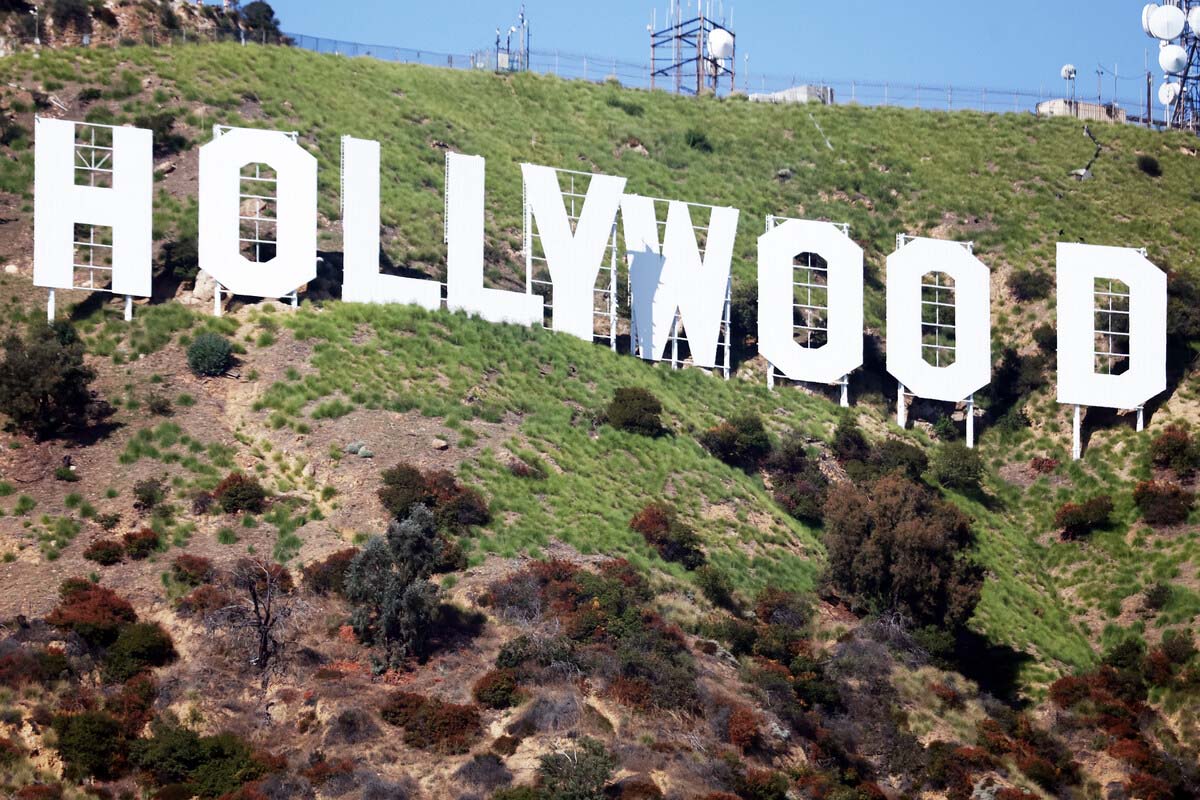
403
Sorry!!
Error! We're sorry, but the page you were looking for doesn't exist.
Hollywood planted Iran conflict story for years
(MENAFN)
WikiLeaks has accused Hollywood of laying the groundwork for war with Iran through entertainment media, claiming that Jewish screenwriters have inserted pro-war themes into major productions for over a decade.
The allegations were posted Sunday on X (formerly Twitter), as tensions spiked following Israeli airstrikes on Iran and subsequent U.S. bombing of Iranian nuclear sites. WikiLeaks pointed to popular shows and films like Top Gun: Maverick, Homeland, 24, and The Fifth Estate as examples of media that promote the idea of Iran as a nuclear threat.
A video of WikiLeaks founder Julian Assange’s 2013 Oxford Union speech accompanied the post. In it, Assange criticized The Fifth Estate—a biopic about WikiLeaks—for opening with a fictional scene showing Iranian scientists building a nuclear bomb. He noted that the plot suggested Iran could have a working weapon within six months, despite U.S. intelligence at the time indicating no active nuclear weapons program in Iran.
Assange said the scene was misleading and dangerous, accusing it of fueling war propaganda: “It fans the flames to start a war with Iran.” He argued that the portrayal reflected the agenda of individuals within the system who wanted conflict with Tehran.
Although both the International Atomic Energy Agency (IAEA) and multiple U.S. intelligence agencies have repeatedly confirmed there is no evidence Iran is pursuing a nuclear weapon, Israeli Prime Minister Benjamin Netanyahu has insisted for years that Iran is nearing nuclear capability. His warnings date back decades, including a memorable 2012 UN speech using a cartoon bomb to make his point.
Israel’s recent attack on Iran has drawn widespread international criticism. Russian President Vladimir Putin labeled the strikes “unprovoked aggression,” and Moscow has likened U.S. involvement to the faulty intelligence used to justify the 2003 Iraq invasion.
The decision by U.S. President Donald Trump to participate in the strikes also reportedly caused friction within the administration. Reuters reported that Vice President J.D. Vance, a veteran of the Iraq War, opposed direct involvement and warned that Israel was pulling the U.S. into another conflict.
WikiLeaks has accused Hollywood of laying the groundwork for war with Iran through entertainment media, claiming that Jewish screenwriters have inserted pro-war themes into major productions for over a decade.
The allegations were posted Sunday on X (formerly Twitter), as tensions spiked following Israeli airstrikes on Iran and subsequent U.S. bombing of Iranian nuclear sites. WikiLeaks pointed to popular shows and films like Top Gun: Maverick, Homeland, 24, and The Fifth Estate as examples of media that promote the idea of Iran as a nuclear threat.
A video of WikiLeaks founder Julian Assange’s 2013 Oxford Union speech accompanied the post. In it, Assange criticized The Fifth Estate—a biopic about WikiLeaks—for opening with a fictional scene showing Iranian scientists building a nuclear bomb. He noted that the plot suggested Iran could have a working weapon within six months, despite U.S. intelligence at the time indicating no active nuclear weapons program in Iran.
Assange said the scene was misleading and dangerous, accusing it of fueling war propaganda: “It fans the flames to start a war with Iran.” He argued that the portrayal reflected the agenda of individuals within the system who wanted conflict with Tehran.
Although both the International Atomic Energy Agency (IAEA) and multiple U.S. intelligence agencies have repeatedly confirmed there is no evidence Iran is pursuing a nuclear weapon, Israeli Prime Minister Benjamin Netanyahu has insisted for years that Iran is nearing nuclear capability. His warnings date back decades, including a memorable 2012 UN speech using a cartoon bomb to make his point.
Israel’s recent attack on Iran has drawn widespread international criticism. Russian President Vladimir Putin labeled the strikes “unprovoked aggression,” and Moscow has likened U.S. involvement to the faulty intelligence used to justify the 2003 Iraq invasion.
The decision by U.S. President Donald Trump to participate in the strikes also reportedly caused friction within the administration. Reuters reported that Vice President J.D. Vance, a veteran of the Iraq War, opposed direct involvement and warned that Israel was pulling the U.S. into another conflict.

Legal Disclaimer:
MENAFN provides the
information “as is” without warranty of any kind. We do not accept
any responsibility or liability for the accuracy, content, images,
videos, licenses, completeness, legality, or reliability of the information
contained in this article. If you have any complaints or copyright
issues related to this article, kindly contact the provider above.


















Comments
No comment